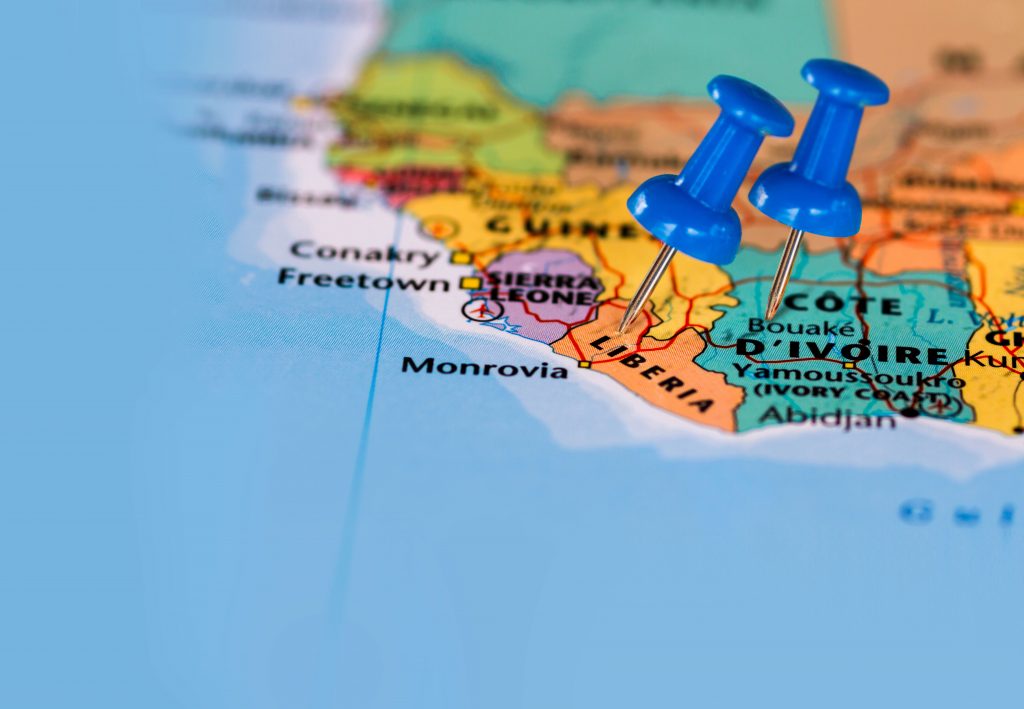Post-Conflict Côte d’Ivoire and Liberia: Hostility is still Looming
After the International Criminal Court in The Hague acquitted Laurent Gbagbo, former president of Côte d’Ivoire, of crimes against humanity and war crimes, the fear of renewed violence is growing. Can the West African country as well as neighbouring Liberia still progress on the path towards a lasting peace?
The roads to peace in Côte d’Ivoire and Liberia have been quite similar. In both cases, external forces and the arrest of political figures responsible for the escalation of violence have played a pivotal role in the return to normalcy after years of civil war. In its Global Findings, the Bertelsmann Transformation Index (BTI) 2018 laudably addresses the peaceful development in both West African countries: “While violence has dramatically escalated in Syria or Yemen, also good post-conflict management in Côte d’Ivoire or Liberia can be recorded, further away from and possibly less noticed by Europe.” But now at least the Ivorian successful path towards peace is in danger as the International Criminal Court in The Hague failed to prosecute crimes of the civil war and acquitted former President Laurent Gbagbo.
French efforts to end the conflict in Côte d’Ivoire
External peacekeeping intervention in both West African countries comprised of three key players. These included a Western power with close historical links to the country – France in Côte d’Ivoire and the US in Liberia – as well as regional and international peacekeeping missions.
France was the first to intervene in Côte d’Ivoire following a coup attempt in September 2002, when rebels tried to topple President Gbagbo, who came to power after a disputed election two years earlier. The country is the economic engine in Francophone West Africa and its collapse would likely have had repercussions well beyond its borders. Facilitated by the on-going presence of a French military base and bilateral defence accords, France was keen to stop fighting through rapid intervention in one of its most important former colonies by creating a buffer zone between the rebel-held north and the government-controlled south.
France provided a rapid reaction force and logistical, human and financial support to the peacekeeping force of the Economic Community of West African States (ECOWAS) and UN peacekeeping missions. It also helped the rebels and the United Nations Operation in Côte d’Ivoire (UNOCI) to forcibly remove Gbagbo from power in April 2011, after he had refused to admit his electoral defeat in late 2010.
US helped stop fighting in Liberia
Similarly, the US played a significant role in bringing the devastating civil war in Liberia to an end. It managed to force President Charles Taylor, a former warlord, to resign and go into exile in Nigeria in August 2003. Taylor’s resigning was the precondition for the US’s deployment of a joint task force to Liberia, which helped ECOWAS forces to defeat the rebel group Liberians United for Reconciliation and Democracy and end fighting.
The Bush administration is also thought to have pressured Nigeria to return Taylor to Liberia in March 2006, where he was apprehended and handed over to the Special Court for Sierra Leone (SCSL). Apart from fighting in Liberia, Taylor was heavily implicated between 1996 and 2002 in the civil war in neighbouring Sierra Leone.
ECOWAS and UN forces boosted legitimacy and prevented resumption of violence
Despite all their shortcomings, regional ECOWAS peacekeeping operations (ECOMOG in Liberia and ECOMICI in Côte d’Ivoire) granted legitimacy to the external intervention. For instance, Gbagbo’s supporters criticised France’s “neo-colonialist” interventionism and demanded “an African solution to an African problem”.
Meanwhile, the UN peacekeeping missions (UNMIL in Liberia and UNOCI in Côte d’Ivoire) stayed in the two countries well beyond the end of the conflict to prevent the resumption of fighting. After several extensions, UNOCI’s mandate ended in June 2017, while UNMIL extended its presence in Liberia until March 2018.
Gbagbo’s and Taylor’s arrests helped pacify the countries
In May 2012, the SCSL sentenced Taylor to 50 years in prison for crimes against humanity and war crimes committed during the civil war in Sierra Leone. And in January 2016, the International Criminal Court opened a trial against Gbagbo and his right-hand man and militia leader, Charles Blé Goudé, whose xenophobic “Ivoirité” policies precipitated the country’s descent into a civil conflict.
The removal of Taylor and Gbagbo from the domestic political scene has doubtlessly helped to pacify the two countries and allowed them to conduct free and fair elections. Liberia is one step ahead of Côte d’Ivoire as it witnessed in December 2017 the first alternation of power since the end of the civil war. Former footballer George Weah of the CDC party defeated the incumbent vice-president Joseph Boakai of the Unity Party. Such a test still awaits Côte d’Ivoire in October 2020, when President Alassane Ouattara’s second and last presidential mandate expires. If Gbagbo and Blé Goudé return to Côte d’Ivoire and take their part in the presidential election it is likely that old enmities will flare up.
Simmering identity tensions still undermine long-term peace
As the BTI country reports for Côte d’Ivoire and Liberia rightly contend, reconciliation has been incomplete and ethnic tensions and cleavages between “indigenous population” and immigrants, which were driving the conflict, persist in both countries. In Côte d’Ivoire many southerners still perceive northerners, including Ouattara, as foreign. This is because northerners share ethnic and religious affiliations with numerous immigrants from neighbouring countries, especially Burkina Faso, Mali and Guinea, who had come to Côte d’Ivoire during the economic boom after independence.
Gbagbo’s supporters also resent that the judiciary has applied “victor’s justice” by overwhelmingly prosecuting only those close to the former president for crimes committed during the civil conflict. As for Liberia, the fact that former warlord Prince Johnson is now a senator and ran for president in the 2011 vote, underscores the ineffectiveness of the Truth and Reconciliation Commission. Johnson was Taylor’s ally in early stages of the civil war and was responsible for the abduction and torturing to death of President Samuel Doe in 1990.
However, Liberia has been somewhat successful in taming ethnic tensions by more inclusive recruitment to civil service positions, whereas in Côte d’Ivoire Gbagbo’s allies have been practically absent from the political and public spheres. In addition, Ouattara’s insistence on a unified RHDP party has prompted the PDCI, his RDR party’s main partner in the ruling coalition, to exit the RHDP, exacerbating ethno-political divisions.
Unless these simmering identity cleavages are properly addressed, the risk of a return of violence will remain. This is particularly the case in Côte d’Ivoire, where the forthcoming presidential election is already stoking tensions and if Gbagbo eventually returns to the political sphere, stability will be endangered. However, the likely intervention of external players in the event of an escalation of violence will most probably prevent the situation from spiralling out of control.
First published in The Fair Observer

